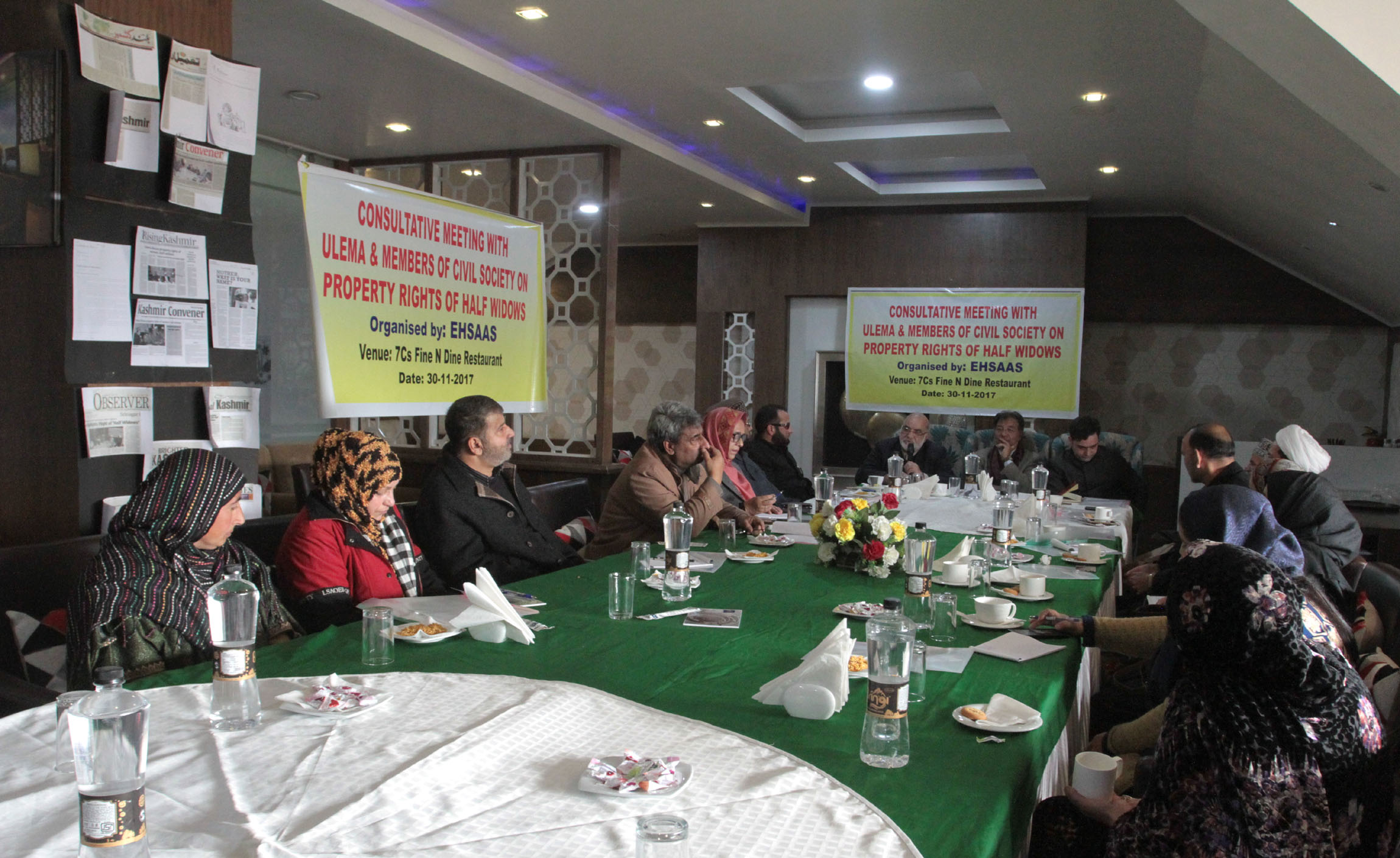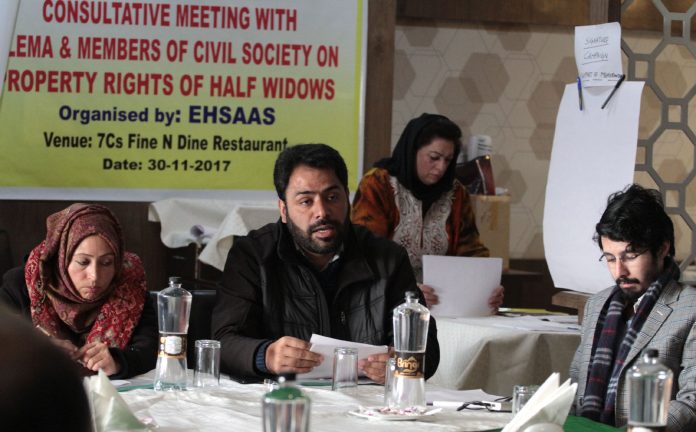By TwoCircles.net Staff Reporter
Srinagar: A consultative meeting of Islamic scholars representing different schools of thought and civil society members on Thursday, November 30 was organised by a Valley-based civil society group–Ehsaas–over the property rights of half-widows.
During the day-long deliberations between religious scholars, educationists, and civil society members, property rights of half-widows were discussed and a signature campaign endorsing the memorandum on property rights to be submitted to J&K government was also started.

“I have been working in a factory, a bookshop, and a school to educate my child. There is a need to help half-widows who have been left to raise three to four children on their own,” Safiya Azad, a half-widow said during the meeting.
Another half-widow Shamima said she had been left to fend for her two children after her husband was subjected to enforced disappearance in 2000. She said she had rejected the ex-gratia relief offered to her and instead sought the whereabouts of her husband that to this day she did not know.
Presiding over the session, Chairperson of Association of Parents of Disappeared Persons (APD), Parveena Ahanger said the property issue of the half-widows was more important than their marriages.
“Even if some of these women take the ex-gratia relief, they only get Rs 12,500 of the Rs 1 lakh while the children get Rs 70,000 and the parents of the disappeared persons the rest,” Ahanger said. She added that there had been cases of in-laws harassing half-widows.
Muslim Khawateen Markaz (MKM) chairperson Anjum Zamruda Habib said there was a need to share the pain of half-widows. Calling for data aggregation on half-widows, she said their issues were close to the hearts of the people of Kashmir and their pain touched their hearts.
Human rights defender and Convenor of Jammu Kashmir Coalition of Civil Society, Khurram Parvez said as per their survey conducted in 2006, there were around 1500 half-widows.
He said most of them do not want to marry and that marriage should not be thrust upon them.
Parvez said the government should not be given a right to interfere in the Muslim Personal Law relating to inheritance and added that the ex-gratia relief the government was providing was not compensation for the loss suffered by the half-widows.
Mufti Muhammad Yaqoob Baba Al Madani from Jamiat Ahli-Hadees said Islam laid a complete blueprint for addressing such issues but the problem existed in the society. He said the rights of half-widows and orphans needed to be protected at all costs.

Civil society member Shakeel Qalander said there was a need to think an out-of-box solution to help the half-widows come out of their misery. He called for starting a pilot project where these half-widows could be helped in a dignified manner.
Former Chief Information Commissioner G R Sufi called upon the Ulemas to come forward for this cause. He also suggested setting up a trust for half-widows to which people could donate and save their taxable amount in the process too.
RTI activist Raja Muzaffar Bhat said there was a need for bringing awareness among the victims and in many cases, he had found that their families did not even know for which organisations their husbands worked.
Journalist Raziya Noor called for providing skill development training to the half-widows.
In 2015, Ehsaas had initiated steps related to property rights of women with special reference to half widows and orphans by organising a deliberative session of Islamic scholars (Ulemas). Earlier in 2013, Ehsaas was instrumental in bringing a landmark consensus regarding the waiting period for half-widows which was decided as four years after rounds of consultations among local Islamic scholars.
Last year, Twocircles.net had done a series on half widows, in which we had highlighted the undermining of the property rights of half-widows by their in-laws.

